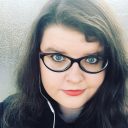Day two began exactly as I had excitedly booked – with a walking tour around Brussels’ city centre toward two stalwart favourites: Brussels’ Chocolate Museum, and the Museum of the Belgian Brewers. Here I learnt of the traditional and contemporary methods used to bring cultural, institutional and iconic products to both tourists and Belgians alike.
Yet culture isn’t just about (delicious) continual production and reproduction. It should be a tool for citizens’ participation and empowerment. My first session – ‘Empowering citizens through culture – Philanthropy at the intersection of art and society‘ elaborated on this.
Eva Van Passel of the Evens Foundation moderated as we divided ourselves into three groups: Music, Identity & Social Inclusion; Arts Promoting Democracy and Culture & Civic Engagement. The former touched on the conflict between the notion of ‘change’ and musicians’ work. Art is not always economically measurable, and so it is important to find new ways to determine value. Arts Promoting Democracy looked at slam poetry, and even had groups report back via a few individual slam poems.
Culture & Civic Engagement explored the FutureLab / Letters to Europe project, with Albert Meijer and Lailuma Sadid engaging the audience with how their project came to be. Letters to Europe is an initiative making a difference through culture, with a book and theatre project on the stories for female refugees, and the divergent identities and backgrounds within this. Sadid herself is an Afghani refugee and journalist, now living in Belgium.
This session as a whole was interactive and loud, bringing in video, instruments and poetry to inspire those in the audience who might wish to support similar initiatives to strengthen communities or individuals.
Onwards then to ‘Data speaks louder than words – An amplifier for philanthropy’. These two sessions in succession felt interestingly at odds with one another; art can at times provide little that is measurable, and requires funders to have trust in projects and to stick with them. Yet at the same time, philanthropy now looks to data and its extraction as a potential new technique for radical improvement in operational efficiency and collaboration.
Malte Beyer-Katzenberger, of DG Connect, European Commission, acknowledged that while data can reduce complexity, it is humanly collected and may therefore lead to bias. The Commission’s vision on a data is a ‘Digital Single Market’, a free flow of data across borders and availability and across organisations. Beyer-Katzenberger stressed that a more data driven public sector would be improved ‘through better access to private sector data’.
Cloudera Foundation’s Claudia Juech looks to empower nonprofits to use data learning. The volume and types of data we generate today is growing exponentially, and in increasing the accuracy and real-time capturing of this data, we can apply more appropriate responses to complex problems.
Stefaan Verhulst of GovLab stood up to talk of ‘data driven philanthropy’, where the former can be used to help change the way philanthropy makes decisions. Data can improve situation analysis, knowledge creation, and foundations can use its data to generation insight into a problem. ‘Rapid evaluation allows for experimentation and agile philanthropy,’ asserted Verhulst.
At the plenary, three key cultural players – Cem Mansur of Turkish National Youth Philharmonic Orchestra, Jenny Sealey of Graeae, and Lemn Sissay MBE, poet and author – were introduced.
‘You are what you listen to,’ said Mansur. ‘But you don’t need to listen to only one thing.’ Culture does not mean one unified voice, but rather a means of understanding one another. ‘The existence of symphonic orchestra shows it’s possible for tradition and innovation to coexist – like reason and faith,’ continued Mansur.
As artists and activists, Mansur, Sealey and Sissay displayed their impact as change makers, speaking at points with bewilderment, passion and anger at the state of society and culture. ‘All people are born equal – but they’re not!’ began Sealey. ‘Where are we [the disabled], as the cultural leaders, the policymakers, the artists?’
Sissay had two poems performed on stage and he spoke of those who decry positive discrimination as ‘lowering the bar’: ‘But that’s how it works! This is from people who wear it so well that they can’t see how it works.’ We watch animals migrating on documentaries constantly, and yet vilify people who do this under the most extreme of circumstances. ‘To be anti-migration is to be anti-nature,’ said Sissay. ‘Migrating is at the heart of who we are – from the womb, to marriage, moving from village to town to city… we call it “growing wings” when it’s your own child.’
Amy McGoldrick is Marketing & Advertising Officer at Alliance magazine



Comments (0)